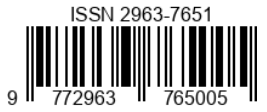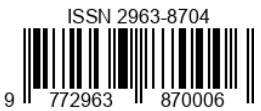Kriminologi Kejahatan Bisnis dan Pertanggungjawaban Perseroan Terbatas dalam Hukum Pidana
DOI:
https://doi.org/10.55606/jhpis.v1i4.4893Keywords:
Criminal Law, Criminology, Corporate CrimesAbstract
Unclear criminal liability regulations for limited liability companies are the main obstacle in eradicating criminal acts committed by limited liability companies. This study focuses on the study of the urgency of regulating criminal liability for limited liability companies in their business activities through a criminology approach. The criminology study in this study uses several theories such as Strain Theory, Social Control Theory, Opportunity Theory, and Work Ethic Theory to analyze the factors that encourage limited liability companies to commit crimes. This study uses a normative legal research method that is descriptive analytical with a statutory approach, case approach, and conceptual approach. The results of the study conclude that the regulation of criminal liability and the imposition of criminal penalties on limited liability companies is urgent because the current regulation of criminal liability has not been able to fulfill the objectives of the law, namely certainty, justice, and benefit, and is a legacy of the colonial era that does not recognize limited liability companies as subjects of criminal law. As an update, Law Number 1 of 2023 seems to be able to answer the challenge of the urgency of criminal liability for limited liability companies as subjects of criminal law, which is stated in Articles 45 to 50 which regulate corporate criminal liability.
Downloads
References
Ali, M. (2008). Kejahatan korporasi: Kajian relevansi sanksi tindakan bagi penanggulangan kejahatan korporasi. Arti Bumi Intaran.
Amin, S. (2019). Keadilan dalam perspektif filsafat hukum terhadap masyarakat. El-Afkar: Jurnal Pemikiran Keislaman dan Tafsir Hadis, 8(1), 1–10.
Braithwaite, J., & Braithwaite, V. (1995). Punishment and restorative justice: A criminological perspective. Routledge.
Candra, S. (2013). Pembaharuan hukum pidana; Konsep pertanggungjawaban pidana dalam hukum pidana nasional yang akan datang. Jurnal Cita Hukum, 1(1), 95895.
Coleman, J. W. (2002). The criminal elite: Understanding white-collar crime. Worth Publishers.
Danil, E. (2021). Korupsi: Konsep, tindak pidana dan pemberantasannya. Rajawali Pers. PT. RajaGrafindo Persada.
Edi Yunara. (2018). Korupsi dan pertanggungjawaban pidana korporasi. PT Citra Aditya Bakti.
Fernando, Z. J. (2020). Pancasila sebagai ideologi pemberantasan kejahatan korporasi di Indonesia. Supremasi Hukum: Jurnal Penelitian Hukum, 29(2), 78–90.
Friedrichs, D. O. (2010). Trusted criminals: White collar crime in contemporary society. Cengage Learning.
Geis, G. (1996). White-collar and corporate crime: A documentary and reference guide. Greenwood Publishing Group.
Geis, G. (2011). White-collar and corporate crime: A documentary and reference guide. ABC-CLIO.
Kusumo, B. A. (2020). Analisis kelemahan tanggung jawab korporasi dalam tindak pidana di bidang perpajakan. Unisri Press.
Manullang, H. (2020). Pertanggungjawaban pidana korporasi.
Marbun, A. N. (2016). Pertanggungjawaban tindak pidana korporasi. Jakarta: MAPPI FH UI.
Marpaung, L. (1991). Tindak pidana korupsi: Masalah dan pemberantasannya (bagian kedua). Sinar Grafika.
Marzuki, P. M. (2021). Pengantar ilmu hukum. Prenada Media.
Muladi, & Priyatno, D. (2015). Pertanggungjawaban pidana korporasi: Edisi ketiga. Kencana.
Prestianto, W. (2021). Peraturan Mahkamah Agung Republik Indonesia Nomor 13 Tahun 2016 tentang tata cara penanganan perkara tindak pidana oleh korporasi: Solusi sementara upaya meminta pertanggungjawaban pidana korporasi. Dharmasisya: Jurnal Program Magister Hukum FHUI, 1(3), 34.
Puspaningrum, P. (2011). Tanggung jawab organ perseroan terbatas (PT) dalam kepailitan. Jurnal Wacana Hukum, 10(2), 23499.
Rahardjo, S. (2000). Ilmu hukum. Citra Aditya Bakti.
Ross, D. (1956). Aristotle: The Nicomachean ethics. Philosophy, 31(116).
Sri Suhartati Astoto. (2016). Anatomi kejahatan korporasi di Indonesia: Relevansi studi kejahatan korporasi.
Suhariyanto, B. (2016). Progresivitas putusan pemidanaan terhadap korporasi pelaku tindak pidana korupsi. Jurnal Penelitian Hukum De Jure, 16(2), 201–213.
Syahrin, A., Anggusti, M., & Alsa, A. A. (2018). Hukum lingkungan di Indonesia: Suatu pengantar. Kencana.
Wells, J. T., & Cromwell, P. (2004). The corporate criminal: Why corporations must be abolished. Critical Criminology, 12(2), 163–184.
Downloads
Published
How to Cite
Issue
Section
License
Copyright (c) 2022 JURNAL HUKUM, POLITIK DAN ILMU SOSIAL

This work is licensed under a Creative Commons Attribution-ShareAlike 4.0 International License.

















